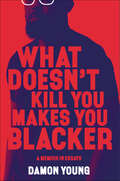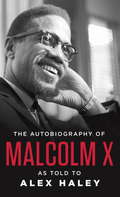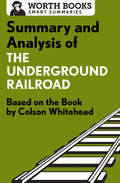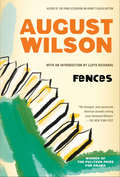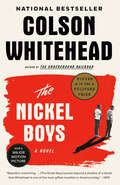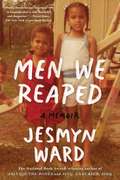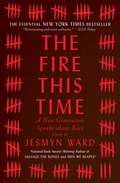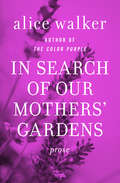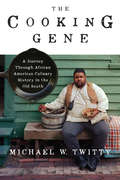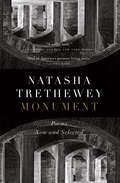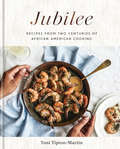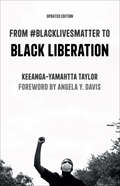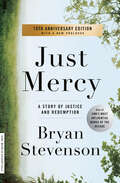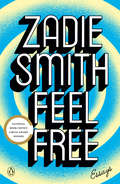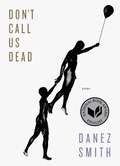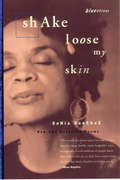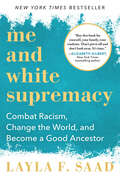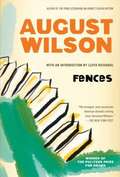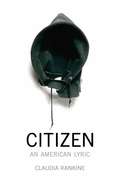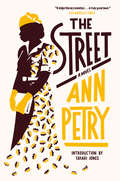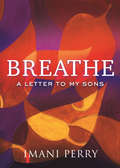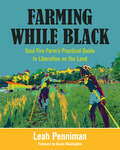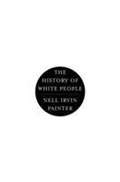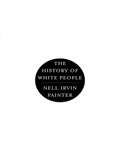Special Collections
Black Liberation Reading List
- Table View
- List View
Brown
by Kevin YoungJames Brown. John Brown's raid. Brown v. the Topeka Board of Ed. The prize-winning author of Blue Laws meditates on all things "brown" in this powerful new collection.
Divided into "Home Recordings" and "Field Recordings," Brown speaks to the way personal experience is shaped by culture, while culture is forever affected by the personal, recalling a black Kansas boyhood to comment on our times. From "History"--a song of Kansas high-school fixture Mr. W., who gave his students "the Sixties / minus Malcolm X, or Watts, / barely a march on Washington"--to "Money Road," a sobering pilgrimage to the site of Emmett Till's lynching, the poems engage place and the past and their intertwined power.
These thirty-two taut poems and poetic sequences, including an oratorio based on Mississippi "barkeep, activist, waiter" Booker Wright that was performed at Carnegie Hall and the vibrant sonnet cycle "De La Soul Is Dead," about the days when hip-hop was growing up ("we were black then, not yet / African American"), remind us that blackness and brownness tell an ongoing story. A testament to Young's own--and our collective--experience, Brown offers beautiful, sustained harmonies from a poet whose wisdom deepens with time.
What Doesn't Kill You Makes You Blacker
by Damon Young“A blazing memoir in essays” (Entertainment Weekly) that explores the ever-shifting definitions of what it means to be black (and a man) in America.An NPR Best Book of the YearA Washington Independent Review of Books Favorite of the YearA Finalist for the NAACP Image AwardA Finalist for the Hurston/Wright Legacy Award for NonfictionA Finalist for the Thurber Prize for American HumorLonglisted for the PEN/Diamonstein-Spielvogel Award for the Art of the EssayFor Damon Young, existing while black is an extreme sport. The act of possessing black skin while searching for space to breathe in America is enough to induce a ceaseless state of angst, where questions such as “How should I react here, as a Professional Black Person?” and “Will this white person’s potato salad kill me?” are forever relevant.Both a celebration of the idiosyncrasies and distinctions of blackness and a critique of white supremacy and how we define masculinity, What Doesn’t Kill You Makes You Blacker is a hilarious and honest debut that chronicles Young’s efforts to survive while battling and making sense of the various neuroses his country has given him.“Young delivers a passionate, wryly bittersweet tribute to Black life in majority-white Pittsburgh . . . A must read.” —Booklist (starred review)“Young’s charm and wit make these essays a pleasure to read; his candid approach makes them memorable.” —Publishers Weekly (starred review)
The Autobiography of Malcolm X
by Malcolm XWith its first great victory in the landmark Supreme Court decision Brown v. Board of Education in 1954, the civil rights movement gained the powerful momentum it needed to sweep forward into its crucial decade, the 1960s.
As voices of protest and change rose above the din of history and false promises, one voice sounded more urgently, more passionately, than the rest. Malcolm X—once called the most dangerous man in America—challenged the world to listen and learn the truth as he experienced it. And his enduring message is as relevant today as when he first delivered it.
In the searing pages of this classic autobiography, originally published in 1964, Malcolm X, the Muslim leader, firebrand, and anti-integrationist, tells the extraordinary story of his life and the growth of the Black Muslim movement to veteran writer and journalist Alex Haley.
In a unique collaboration, Haley worked with Malcolm X for nearly two years, interviewing, listening to, and understanding the most controversial leader of his time.
Raised in Lansing, Michigan, Malcolm Little journeyed on a road to fame as astonishing as it was unpredictable. Drifting from childhood poverty to petty crime, Malcolm found himself in jail. It was there that he came into contact with the teachings of a little-known Black Muslim leader renamed Elijah Muhammad. The newly renamed Malcolm X devoted himself body and soul to the teachings of Elijah Muhammad and the world of Islam, becoming the Nation’s foremost spokesman.
When his conscience forced him to break with Elijah Muhammad, Malcolm founded the Organization of Afro-American Unity to reach African Americans across the country with an inspiring message of pride, power, and self-determination.
The Autobiography of Malcolm X defines American culture and the African American struggle for social and economic equality that has now become a battle for survival. Malcolm’s fascinating perspective on the lies and limitations of the American Dream, and the inherent racism in a society that denies its nonwhite citizens the opportunity to dream, gives extraordinary insight into the most urgent issues of our own time.
The Autobiography of Malcolm X stands as the definitive statement of a movement and a man whose work was never completed but whose message is timeless. It is essential reading for anyone who wants to understand America.
A New York Times Bestseller
Summary and Analysis of The Underground Railroad
by Worth BooksSo much to read, so little time? This brief overview of The Underground Railroad tells you what you need to know—before or after you read Colson Whitehead&’s book. Crafted and edited with care, Worth Books set the standard for quality and give you the tools you need to be a well-informed reader. This short summary and analysis of The Underground Railroad by Colson Whitehead includes: Historical contextChapter-by-chapter summariesAnalysis of the main charactersThemes and symbolsImportant quotesFascinating triviaGlossary of termsSupporting material to enhance your understanding of the original work About The Underground Railroad by Colson Whitehead: Colson Whitehead&’s National Book Award–winning The Underground Railroad is a bold, original, and unflinchingly brutal portrait of slavery during the darkest period in American history. On the cusp of womanhood, Cora is a runaway slave, pursued by her memories of abuse and abandonment, and by the implacable and notoriously cruel slave hunter known as Ridgeway. Her journey on the Underground Railroad—in Whitehead&’s conceit, a literal, subterranean railway—propels her journey across a dangerous landscape in search of freedom. The summary and analysis in this ebook are intended to complement your reading experience and bring you closer to a great work of fiction.
Fences
by August WilsonFrom legendary playwright August Wilson comes the powerful, stunning dramatic bestseller that won him critical acclaim, including the Tony Award for Best Play and the Pulitzer Prize.Troy Maxson is a strong man, a hard man. He has had to be to survive. Troy Maxson has gone through life in an America where to be proud and black is to face pressures that could crush a man, body and soul. But the 1950s are yielding to the new spirit of liberation in the 1960s, a spirit that is changing the world Troy Maxson has learned to deal with the only way he can, a spirit that is making him a stranger, angry and afraid, in a world he never knew and to a wife and son he understands less and less. This is a modern classic, a book that deals with the impossibly difficult themes of race in America, set during the Civil Rights Movement of the 1950s and 60s. Now an Academy Award-winning film directed by and starring Denzel Washington, along with Academy Award and Golden Globe winner Viola Davis.
The Nickel Boys
by Colson WhiteheadIn this bravura follow-up to the Pulitzer Prize and National Book Award-winning #1 New York Times bestseller The Underground Railroad, Colson Whitehead brilliantly dramatizes another strand of history through the story of two boys sentenced to a hellish reform school in Jim Crow-era Florida.
As the Civil Rights movement begins to reach the black enclave of Frenchtown in segregated Tallahassee, Florida, Elwood Curtis takes the words of Dr. Martin Luther King to heart: he is "as good as anyone." Abandoned by his parents, but kept on the straight and narrow by his grandmother, Elwood is about to enroll in the local black college.
But for a black boy in the American South in the early 1960s, one innocent mistake is enough to destroy the future. Elwood is sentenced to a juvenile reformatory called The Nickel Academy, whose mission statement says it provides "physical, intellectual and moral training" so the delinquent boys in their charge can become "honorable and honest men."
In reality, The Nickel Academy is a grotesque chamber of horrors, where the sadistic staff beats and sexually abuses the students, corrupt officials and locals steal food and supplies, and any boy who resists is likely to disappear "out back." Stunned to find himself in such a vicious environment, Elwood tries to hold on to Dr. King's ringing assertion "throw us in jail and we will still love you."
His friend Turner thinks Elwood is worse than naive, that the world is crooked and the only way to survive is to scheme and avoid trouble. The tension between Elwood's ideals and Turner's skepticism leads to a decision whose repercussions will echo down the decades. Formed in the crucible of the evils Jim Crow wrought, the boys' fates will be determined by what they endured at The Nickel Academy.
Based on the true story of a reform school in Florida that operated for one hundred and eleven years and warped the lives of thousands of children, The Nickel Boys is a devastating, driven narrative that showcases a great American novelist writing at the height of his powers.
A New York Times Bestseller
Men We Reaped
by Jesmyn WardIn five years, Jesmyn Ward lost five men in her life, to drugs, accidents, suicide and the bad luck that can follow people who live in poverty, particularly black men. Dealing with these losses, one after another, made Jesmyn ask the question: why? And as she began to write about the experience of living through death, she realized the truth - and it took her breath away. Here, she bravely tells her story, revisiting the agonizing losses of her only brother and her friends.
The Fire This Time
by Jesmyn WardNational Book Award-winner Jesmyn Ward takes James Baldwin's 1963 examination of race in America, The Fire Next Time, as a jumping off point for this groundbreaking collection of essays and poems about race from the most important voices of her generation and our time.
In light of recent tragedies and widespread protests across the nation, The Progressive magazine republished one of its most famous pieces: James Baldwin's 1962 "Letter to My Nephew," which was later published in his landmark book, The Fire Next Time. Addressing his fifteen-year-old namesake on the one hundredth anniversary of the Emancipation Proclamation, Baldwin wrote: "You know and I know, that the country is celebrating one hundred years of freedom one hundred years too soon."
Award-winning author Jesmyn Ward knows that Baldwin's words ring as true as ever today. In response, she has gathered short essays, memoir, and a few essential poems to engage the question of race in the United States. And she has turned to some of her generation's most original thinkers and writers to give voice to their concerns.
The Fire This Time is divided into three parts that shine a light on the darkest corners of our history, wrestle with our current predicament, and envision a better future. Of the eighteen pieces, ten were written specifically for this volume.
In the fifty-odd years since Baldwin's essay was published, entire generations have dared everything and made significant progress. But the idea that we are living in the post-Civil Rights era, that we are a "post-racial" society is an inaccurate and harmful reflection of a truth the country must confront. Baldwin's "fire next time" is now upon us, and it needs to be talked about.
Contributors include Carol Anderson, Jericho Brown, Garnette Cadogan, Edwidge Danticat, Rachel Kaadzi Ghansah, Mitchell S. Jackson, Honoree Jeffers, Kima Jones, Kiese Laymon, Daniel Jose Older, Emily Raboteau, Claudia Rankine, Clint Smith, Natasha Trethewey, Wendy S. Walters, Isabel Wilkerson, and Kevin Young.
In Search of Our Mothers' Gardens
by Alice WalkerA collection of early personal and political essays from the Pulitzer Prize–winning author of The Color Purple.Includes a new letter written by the author What is a womanist? Alice Walker sets out to define the concept in this anthology of early essays and other nonfiction pieces. As she outlines it, a womanist is a person who prefers to side with the oppressed: with women, with people of color, with the poor. As a writer, Walker has always taken such people as her primary subjects, and her search for paths toward self-possession and freedom always holds out hope for the transformative power of compassion and love. Whether she&’s taking on nuclear proliferation, the promise and problems of the civil rights movement, or her own creative process, Walker always brings to bear a fearless determination to tell the truth. This ebook features an illustrated biography of Alice Walker including rare photos from the author&’s personal collection.
The Cooking Gene
by Michael W. TwittyA renowned culinary historian offers a fresh perspective on our most divisive cultural issue, race, in this illuminating memoir of Southern cuisine and food culture that traces his ancestry—both black and white—through food, from Africa to America and slavery to freedom.Southern food is integral to the American culinary tradition, yet the question of who "owns" it is one of the most provocative touch points in our ongoing struggles over race. In this unique memoir, culinary historian Michael W. Twitty takes readers to the white-hot center of this fight, tracing the roots of his own family and the charged politics surrounding the origins of soul food, barbecue, and all Southern cuisine. From the tobacco and rice farms of colonial times to plantation kitchens and backbreaking cotton fields, Twitty tells his family story through the foods that enabled his ancestors’ survival across three centuries. He sifts through stories, recipes, genetic tests, and historical documents, and travels from Civil War battlefields in Virginia to synagogues in Alabama to Black-owned organic farms in Georgia. As he takes us through his ancestral culinary history, Twitty suggests that healing may come from embracing the discomfort of the Southern past. Along the way, he reveals a truth that is more than skin deep—the power that food has to bring the kin of the enslaved and their former slaveholders to the table, where they can discover the real America together.Illustrations by Stephen Crotts
Monument
by Natasha TretheweyLonglisted for the 2018 National Book Award for Poetry “[Trethewey’s poems] dig beneath the surface of history—personal or communal, from childhood or from a century ago—to explore the human struggles that we all face.” —James H. Billington, 13th Librarian of Congress Layering joy and urgent defiance—against physical and cultural erasure, against white supremacy whether intangible or graven in stone—Trethewey’s work gives pedestal and witness to unsung icons. Monument, Trethewey’s first retrospective, draws together verse that delineates the stories of working class African American women, a mixed-race prostitute, one of the first black Civil War regiments, mestizo and mulatto figures in Casta paintings, Gulf coast victims of Katrina. Through the collection, inlaid and inextricable, winds the poet’s own family history of trauma and loss, resilience and love. In this setting, each section, each poem drawn from an “opus of classics both elegant and necessary,”* weaves and interlocks with those that come before and those that follow. As a whole, Monument casts new light on the trauma of our national wounds, our shared history. This is a poet’s remarkable labor to source evidence, persistence, and strength from the past in order to change the very foundation of the vocabulary we use to speak about race, gender, and our collective future. *Academy of American Poets’ chancellor Marilyn Nelson
Jubilee
by Toni Tipton-MartinMore than 100 recipes that paint a rich, varied picture of the true history of African American cooking—from a James Beard Award–winning food writer NAMED ONE OF FALL&’S BEST COOKBOOKS BY The New York Times • Bon Appétit • Eater • Food & Wine • Kitchn • Chowhound Throughout her career, Toni Tipton-Martin has shed new light on the history, breadth, and depth of African American cuisine. She&’s introduced us to black cooks, some long forgotten, who established much of what&’s considered to be our national cuisine. After all, if Thomas Jefferson introduced French haute cuisine to this country, who do you think actually cooked it? In Jubilee, Tipton-Martin brings these masters into our kitchens. Through recipes and stories, we cook along with these pioneering figures, from enslaved chefs to middle- and upper-class writers and entrepreneurs. With more than 100 recipes, from classics such as Sweet Potato Biscuits, Seafood Gumbo, Buttermilk Fried Chicken, and Pecan Pie with Bourbon to lesser-known but even more decadent dishes like Bourbon & Apple Hot Toddies, Spoon Bread, and Baked Ham Glazed with Champagne, Jubilee presents techniques, ingredients, and dishes that show the roots of African American cooking—deeply beautiful, culturally diverse, fit for celebration.
From #BlackLivesMatter to Black Liberation
by Keeanga-Yamahtta TaylorThe author of Race for Profit carries out &“[a] searching examination of the social, political and economic dimensions of the prevailing racial order&” (Michelle Alexander, author of The New Jim Crow). In this winner of the Lannan Cultural Freedom Prize for an Especially Notable Book, Keeanga-Yamahtta Taylor &“not only exposes the canard of color-blindness but reveals how structural racism and class oppression are joined at the hip&” (Robin D. G. Kelley, author of Freedom Dreams). The eruption of mass protests in the wake of the police murders of Michael Brown in Ferguson, Missouri, and Eric Garner in New York City have challenged the impunity with which officers of the law carry out violence against black people and punctured the illusion of a post-racial America. The Black Lives Matter movement has awakened a new generation of activists. In this stirring and insightful analysis, activist and scholar Keeanga-Yamahtta Taylor surveys the historical and contemporary ravages of racism and the persistence of structural inequality, such as mass incarceration and black unemployment. In this context, she argues that this new struggle against police violence holds the potential to reignite a broader push for black liberation. &“This brilliant book is the best analysis we have of the #BlackLivesMatter moment of the long struggle for freedom in America. Keeanga-Yamahtta Taylor has emerged as the most sophisticated and courageous radical intellectual of her generation.&” —Dr. Cornel West, author of Race Matters &“A must read for everyone who is serious about the ongoing praxis of freedom.&” —Barbara Ransby, author of Ella Baker and the Black Freedom Movement &“[A] penetrating, vital analysis of race and class at this critical moment in America&’s racial history.&” —Gary Younge, author of The Speech: The Story Behind Dr. Martin Luther King Jr.'s Dream
Just Mercy
by Bryan Stevenson#1 NEW YORK TIMES BESTSELLER • NOW A MAJOR MOTION PICTURE STARRING MICHAEL B. JORDAN AND JAMIE FOXX • A powerful true story about the potential for mercy to redeem us, and a clarion call to fix our broken system of justice—from one of the most brilliant and influential lawyers of our time. &“[Bryan Stevenson&’s] dedication to fighting for justice and equality has inspired me and many others and made a lasting impact on our country.&”—John LegendNAMED ONE OF THE MOST INFLUENTIAL BOOKS OF THE DECADE BY CNN • Named One of the Best Books of the Year by The New York Times • The Washington Post • The Boston Globe • The Seattle Times • Esquire • Time Bryan Stevenson was a young lawyer when he founded the Equal Justice Initiative, a legal practice dedicated to defending those most desperate and in need: the poor, the wrongly condemned, and women and children trapped in the farthest reaches of our criminal justice system. One of his first cases was that of Walter McMillian, a young man who was sentenced to die for a notorious murder he insisted he didn&’t commit. The case drew Bryan into a tangle of conspiracy, political machination, and legal brinksmanship—and transformed his understanding of mercy and justice forever. Just Mercy is at once an unforgettable account of an idealistic, gifted young lawyer&’s coming of age, a moving window into the lives of those he has defended, and an inspiring argument for compassion in the pursuit of true justice.Winner of the Carnegie Medal for Excellence in Nonfiction • Winner of the NAACP Image Award for Nonfiction • Winner of a Books for a Better Life Award • Finalist for the Los Angeles Times Book Prize • Finalist for the Kirkus Reviews Prize • An American Library Association Notable Book&“Every bit as moving as To Kill a Mockingbird, and in some ways more so . . . a searing indictment of American criminal justice and a stirring testament to the salvation that fighting for the vulnerable sometimes yields.&”—David Cole, The New York Review of Books &“Searing, moving . . . Bryan Stevenson may, indeed, be America&’s Mandela.&”—Nicholas Kristof, The New York Times &“You don&’t have to read too long to start cheering for this man. . . . The message of this book . . . is that evil can be overcome, a difference can be made. Just Mercy will make you upset and it will make you hopeful.&”—Ted Conover, The New York Times Book Review &“Inspiring . . . a work of style, substance and clarity . . . Stevenson is not only a great lawyer, he&’s also a gifted writer and storyteller.&”—The Washington Post &“As deeply moving, poignant and powerful a book as has been, and maybe ever can be, written about the death penalty.&”—The Financial Times &“Brilliant.&”—The Philadelphia Inquirer
Feel Free
by Zadie SmithArranged into five sections--In the World, In the Audience, In the Gallery, On the Bookshelf, and Feel Free--this new collection poses questions we immediately recognize.
What is The Social Network--and Facebook itself--really about?
"It's a cruel portrait of us: 500 million sentient people entrapped in the recent careless thoughts of a Harvard sophomore."
Why do we love libraries?
"Well-run libraries are filled with people because what a good library offers cannot be easily found elsewhere: an indoor public space in which you do not have to buy anything in order to stay."
What will we tell our granddaughters about our collective failure to address global warming?
"So I might say to her, look: the thing you have to appreciate is that we'd just been through a century of relativism and deconstruction, in which we were informed that most of our fondest-held principles were either uncertain or simple wishful thinking, and in many areas of our lives we had already been asked to accept that nothing is essential and everything changes--and this had taken the fight out of us somewhat."
Don't Call Us Dead
by Danez SmithAward-winning poet Danez Smith is a groundbreaking force, celebrated for deft lyrics, urgent subjects, and performative power.
Don’t Call Us Dead opens with a heartrending sequence that imagines an afterlife for black men shot by police, a place where suspicion, violence, and grief are forgotten and replaced with the safety, love, and longevity they deserved here on earth.
Smith turns then to desire, mortality—the dangers experienced in skin and body and blood—and a diagnosis of HIV positive.
Shake Loose My Skin
by Sonia SanchezAn extraordinary retrospective covering over thirty years of work, Shake Loose My Skin is a stunning testament to the literary, sensual, and political powers of the award-winning Sonia Sanchez.
Me and White Supremacy
by Layla SaadBased on the viral Instagram challenge that captivated participants worldwide, Me and White Supremacy takes readers on a 28-day journey of how to dismantle the privilege within themselves so that they can stop (often unconsciously) inflicting damage on people of color, and in turn, help other white people do better, too.
When Layla Saad began an Instagram challenge called #meandwhitesupremacy, she never predicted it would spread as widely as it did. She encouraged people to own up and share their racist behaviors, big and small. She was looking for truth, and she got it. Thousands of people participated in the challenge, and nearly 100,000 people downloaded the Me and White Supremacy Workbook.
Updated and expanded from the original workbook, Me and White Supremacy,takes the work deeper by adding more historical and cultural contexts, sharing moving stories and anecdotes, and including expanded definitions, examples, and further resources.Awareness leads to action, and action leads to change. The numbers show that readers are ready to do this work—let's give it to them.
A New York Times Bestseller
Fences
by August Wilson and Lloyd RichardsThe 1987 Winner of the Pulitzer Prize for Drama From August Wilson, author of The Piano Lesson and the 1984-85 Broadway season's best play, Ma Rainey's Black Bottom, is another powerful, stunning dramatic work that has won him numerous critical acclaim including the 1987 Tony Award for Best Play and the Pulitzer Prize. The protagonist of Fences (part of Wilson's ten-part "Pittsburgh Cycle" plays), Troy Maxson, is a strong man, a hard man. He has had to be to survive Troy Maxson has gone through life in an America where to be proud and black is to face pressures that could crush a man, body and soul. But the1950s are yielding to the new spirit of liberation in the 1960s. . . a spirit that is changing the world Troy Maxson has learned to deal with the only way he can. . . a spirit that is making him a stranger, angry and afraid, in a world he never knew and to a wife and son he understands less and less. . .
Citizen
by Claudia RankineA provocative meditation on race, Claudia Rankine’s long-awaited follow up to her groundbreaking book Don’t Let Me Be Lonely: An American Lyric
Claudia Rankine’s bold new book recounts mounting racial aggressions in ongoing encounters in twenty-first-century daily life and in the media. Some of these encounters are slights, seeming slips of the tongue, and some are intentional offensives in the classroom, at the supermarket, at home, on the tennis court with Serena Williams and the soccer field with Zinedine Zidane, online, on TV—everywhere, all the time. The accumulative stresses come to bear on a person’s ability to speak, perform, and stay alive. Our addressability is tied to the state of our belonging, Rankine argues, as are our assumptions and expectations of citizenship. In essay, image, and poetry, Citizen is a powerful testament to the individual and collective effects of racism in our contemporary, often named “post-race” society.
The Street
by Ann PetryTHE STREET tells the poignant, often heartbreaking story of Lutie Johnson, a young black woman, and her spirited struggle to raise her son amid the violence, poverty, and racial dissonance of Harlem in the late 1940s. Originally published in 1946 and hailed by critics as a masterwork, The Street was Ann Petry's first novel, a beloved bestseller with more than a million copies in print. Its haunting tale still resonates today.
Breathe
by Imani PerryExplores the terror, grace, and beauty of coming of age as a Black person in contemporary America and what it means to parent our children in a persistently unjust world.Emotionally raw and deeply reflective, Imani Perry issues an unflinching challenge to society to see Black children as deserving of humanity. She admits fear and frustration for her African American sons in a society that is increasingly racist and at times seems irredeemable. However, as a mother, feminist, writer, and intellectual, Perry offers an unfettered expression of love--finding beauty and possibility in life--and she exhorts her children and their peers to find the courage to chart their own paths and find steady footing and inspiration in Black tradition. Perry draws upon the ideas of figures such as James Baldwin, W. E. B. DuBois, Emily Dickinson, Toni Morrison, Ralph Waldo Emerson, and Ida B. Wells. She shares vulnerabilities and insight from her own life and from encounters in places as varied as the West Side of Chicago; Birmingham, Alabama; and New England prep schools. With original art for the cover by Ekua Holmes, Breathe offers a broader meditation on race, gender, and the meaning of a life well lived and is also an unforgettable lesson in Black resistance and resilience.
Farming While Black
by Leah PennimanRecipient of the 28th Heinz Awards for the Economy: Leah PennimanJames Beard Foundation Leadership Award 2019: Leah PennimanChoice Reviews, Outstanding Academic Title&“An extraordinary book…part agricultural guide, part revolutionary manifesto.&”—VOGUENamed a &“Best Book on Sustainable Living and Sustainability&” by Book RiotIn 1920, 14 percent of all land-owning US farmers were black. Today less than 2 percent of farms are controlled by black people—a loss of over 14 million acres and the result of discrimination and dispossession. While farm management is among the whitest of professions, farm labor is predominantly brown and exploited, and people of color disproportionately live in &“food apartheid&” neighborhoods and suffer from diet-related illness. The system is built on stolen land and stolen labor and needs a redesign.Farming While Black is the first comprehensive &“how to&” guide for aspiring African-heritage growers to reclaim their dignity as agriculturists and for all farmers to understand the distinct, technical contributions of African-heritage people to sustainable agriculture. At Soul Fire Farm, author Leah Penniman co-created the Black and Latinx Farmers Immersion (BLFI) program as a container for new farmers to share growing skills in a culturally relevant and supportive environment led by people of color. Farming While Black organizes and expands upon the curriculum of the BLFI to provide readers with a concise guide to all aspects of small-scale farming, from business planning to preserving the harvest. Throughout the chapters Penniman uplifts the wisdom of the African diasporic farmers and activists whose work informs the techniques described—from whole farm planning, soil fertility, seed selection, and agroecology, to using whole foods in culturally appropriate recipes, sharing stories of ancestors, and tools for healing from the trauma associated with slavery and economic exploitation on the land. Woven throughout the book is the story of Soul Fire Farm, a national leader in the food justice movement. The technical information is designed for farmers and gardeners with beginning to intermediate experience. For those with more experience, the book provides a fresh lens on practices that may have been taken for granted as ahistorical or strictly European. Black ancestors and contemporaries have always been leaders—and continue to lead—in the sustainable agriculture and food justice movements. It is time for all of us to listen.&“A moving and powerful how-to book for Black farmers to reclaim the occupation and the contributions of the BIPOC community that introduced sustainable agriculture.&”—BookRiot.com&“Leah Penniman is . . . opening the door for the next generation of farmers.&”—CBS This Morning
The History of White People
by Nell Irvin PainterEver since the Enlightenment, race theory and its inevitable partner, racism, have followed a crooked road, constructed by dominant peoples to justify their domination of others. Filling a huge gap in historical literature that long focused on the non-white, eminent historian Nell Irvin Painter guides us through more than two thousand years of Western civilization, tracing not only the invention of the idea of race but also the frequent worship of "whiteness" for economic, social, scientific, and political ends. Our story begins in Greek and Roman antiquity, where the concept of race did not exist, only geography and the opportunity to conquer and enslave others. Not until the eighteenth century did an obsession with whiteness flourish, with the German invention of the notion of Caucasian beauty. This theory made northern Europeans into "Saxons," "Anglo-Saxons," and "Teutons," envisioned as uniquely handsome natural rulers. Here was a worldview congenial to northern Europeans bent on empire. There followed an explosion of theories of race, now focusing on racial temperament as well as skin color. Spread by such intellectuals as Madame de Stael and Thomas Carlyle, white race theory soon reached North America with a vengeance. Its chief spokesman, Ralph Waldo Emerson, did the most to label Anglo-Saxons-icons of beauty and virtue-as the only true Americans. It was an ideal that excluded not only blacks but also all ethnic groups not of Protestant, northern European background. The Irish and Native Americans were out and, later, so were the Chinese, Jews, Italians, Slavs, and Greeks-all deemed racially alien. Did immigrations threaten the very existence of America? Americans were assumed to be white, but who among poor immigrants could become truly American? A tortured and convoluted series of scientific explorations developed-theories intended to keep Anglo-Saxons at the top: the ever-popular measurement of skulls, the powerful eugenics movement, and highly biased intelligence tests-all designed to keep working people out and down. As Painter reveals, power-supported by economics, science, and politics-continued to drive exclusionary notions of whiteness until, deep into the twentieth century, political realities enlarged the category of truly American. A story filled with towering historical figures, The History of White People forcefully reminds us that the concept of one white race is a recent invention. The meaning, importance, and realty of this all-too-human thesis of race have buckled under the weight of a long and rich unfolding of events.
The History of White People
by Nell Irvin PainterA New York Times bestseller: "This terrific new book . . . [explores] the 'notion of whiteness,' an idea as dangerous as it is seductive."--Boston Globe Telling perhaps the most important forgotten story in American history, eminent historian Nell Irvin Painter guides us through more than two thousand years of Western civilization, illuminating not only the invention of race but also the frequent praise of "whiteness" for economic, scientific, and political ends. A story filled with towering historical figures, The History of White People closes a huge gap in literature that has long focused on the non-white and forcefully reminds us that the concept of "race" is an all-too-human invention whose meaning, importance, and reality have changed as it has been driven by a long and rich history of events.

